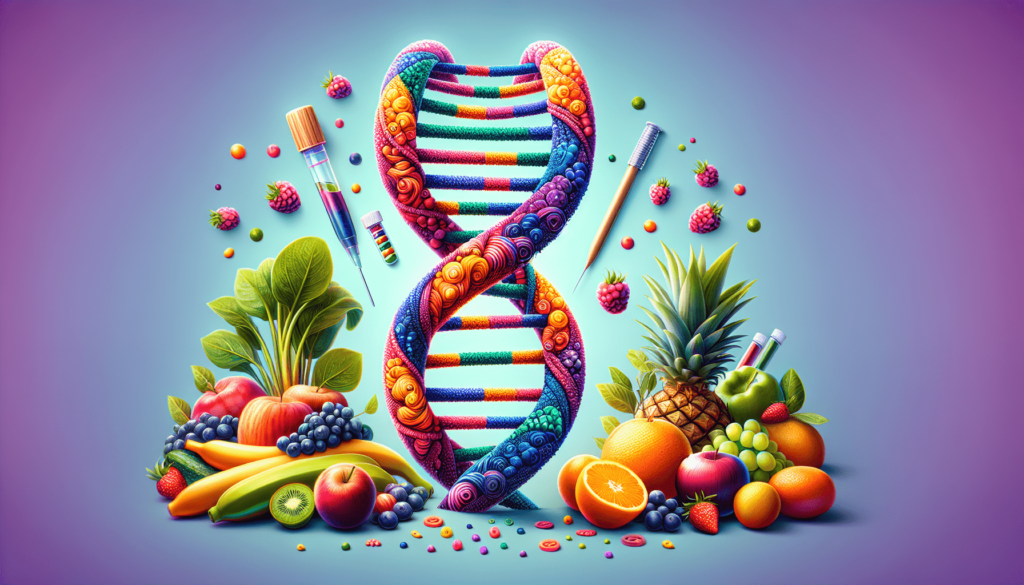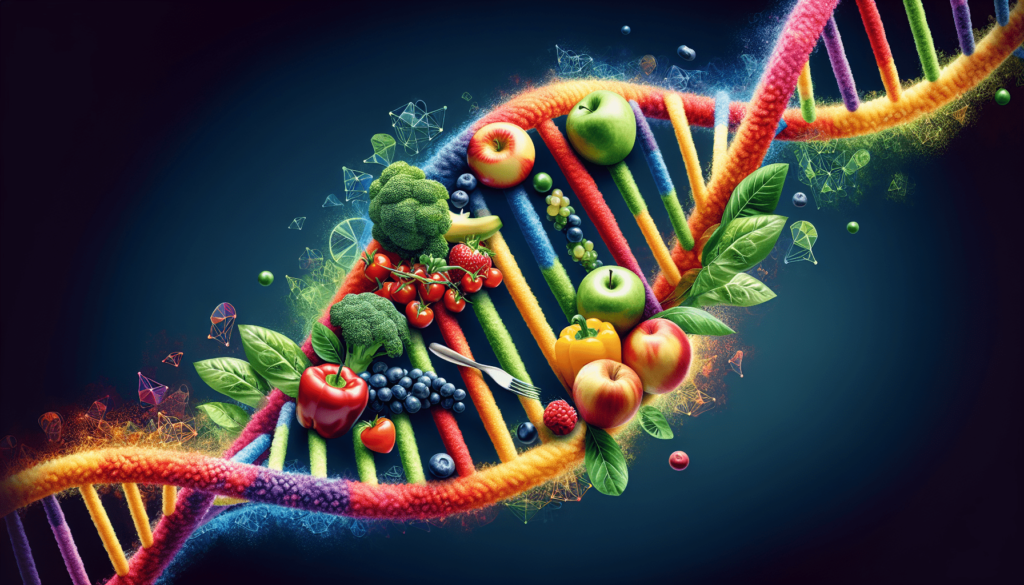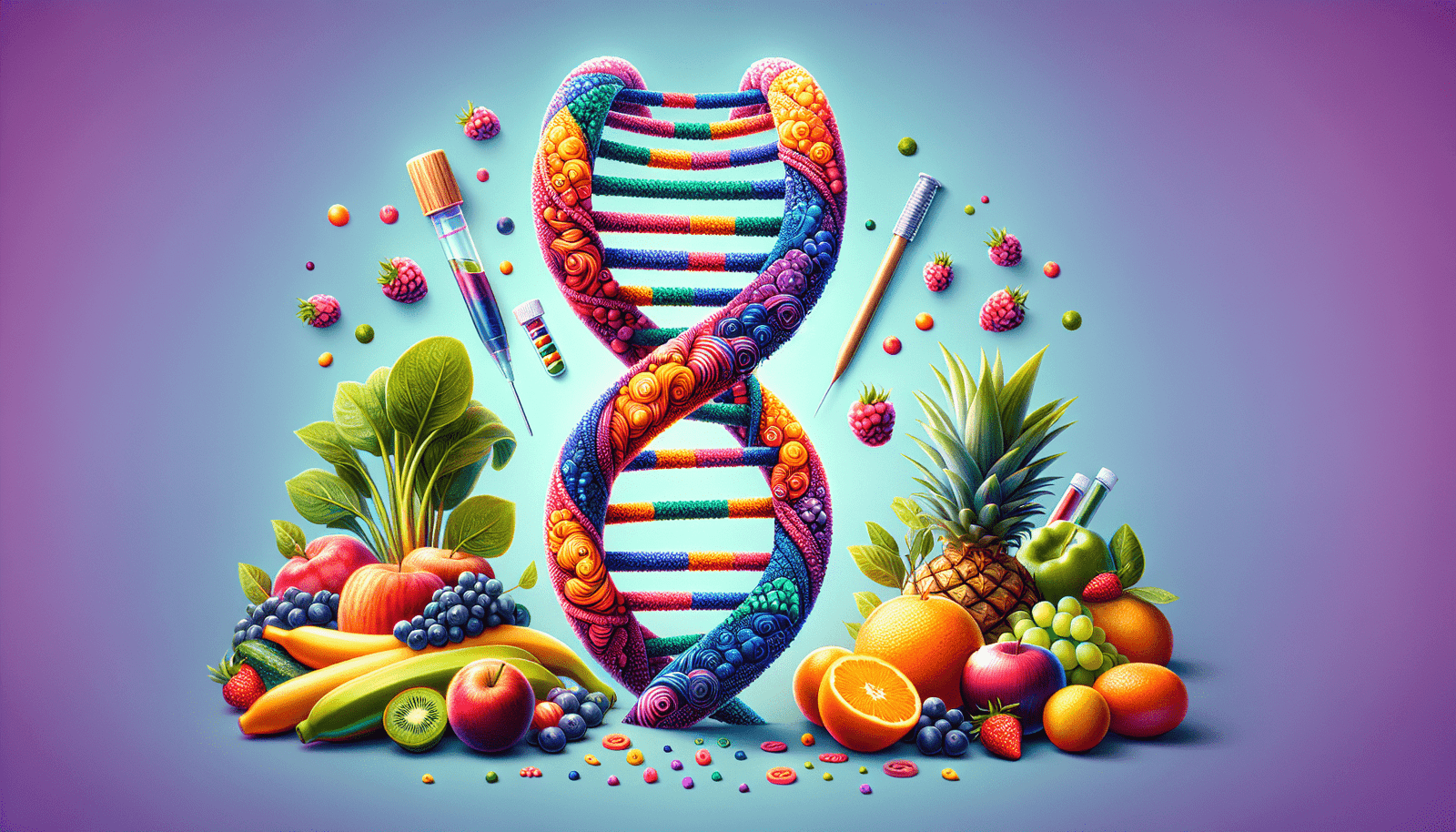Welcome to the insightful world of genetic testing for personalized nutrition! In this article, you will learn about the advantages and disadvantages of utilizing genetic testing to tailor your diet and lifestyle choices to your unique genetic makeup. By understanding the potential benefits and challenges associated with this innovative approach, you will be better equipped to make informed decisions about your health and well-being. So let’s dive in and explore the fascinating world of personalized nutrition through genetic testing! Have you ever wondered if your genes hold the key to optimizing your nutrition and overall health? Genetic testing for personalized nutrition is a rapidly growing field that offers personalized insights into which foods and nutrients may be best for your unique genetic makeup. In this article, we will explore the pros and cons of genetic testing for personalized nutrition to help you determine if this cutting-edge technology is right for you.

Understanding Genetic Testing for Personalized Nutrition
Genetic testing for personalized nutrition involves analyzing your DNA to identify specific genetic variations that may impact how your body processes nutrients from food. These variations, known as single nucleotide polymorphisms (SNPs), can provide valuable information on how your body metabolizes certain vitamins, minerals, and macronutrients.
How Does Genetic Testing Work?
Genetic testing for personalized nutrition typically involves providing a saliva or blood sample, which is then analyzed by a laboratory to identify specific genetic variations related to nutrient metabolism. Once the results are available, a personalized nutrition plan can be created based on your unique genetic profile.
Why Consider Genetic Testing for Personalized Nutrition?
By understanding how your body processes nutrients at a genetic level, you can optimize your diet and lifestyle choices to better support your overall health and well-being. Genetic testing for personalized nutrition can help identify nutrient deficiencies, intolerances, and sensitivities, as well as provide insights into how your body responds to different types of diets.
The Pros of Genetic Testing for Personalized Nutrition
Genetic testing for personalized nutrition offers a range of benefits that can help you make more informed decisions about your diet and lifestyle. Here are some of the pros of genetic testing for personalized nutrition:
Personalized Nutrition Recommendations
One of the biggest advantages of genetic testing for personalized nutrition is the ability to receive personalized nutrition recommendations based on your unique genetic makeup. These recommendations can help you optimize your diet to better support your health goals, such as weight management, energy levels, and overall well-being.
Targeted Nutrient Supplementation
Genetic testing for personalized nutrition can also help identify specific nutrient deficiencies that may be impacting your health. By pinpointing which nutrients your body may need extra support with, you can tailor your supplement regimen to address these deficiencies more effectively.
Enhanced Food Sensitivity Testing
Genetic testing for personalized nutrition can also provide insights into food sensitivities and intolerances that may be influenced by your genetic makeup. By identifying which foods your body may have trouble metabolizing, you can make more informed decisions about your diet to avoid potential digestive issues or other health concerns.
Improved Weight Management Strategies
Your genetic profile can also provide valuable insights into how your body responds to different types of diets and exercise regimens. By understanding your genetic predispositions related to metabolism and energy balance, you can tailor your weight management strategies to better align with your body’s natural tendencies.
Long-Term Health Benefits
By optimizing your nutrition and lifestyle choices based on your genetic profile, you can potentially reduce your risk of developing chronic diseases later in life. Genetic testing for personalized nutrition can help you take a proactive approach to your health by identifying areas where targeted interventions may be beneficial.
Enhanced Overall Well-Being
Overall, genetic testing for personalized nutrition can provide a comprehensive overview of your genetic predispositions related to nutrition and health. By using this information to guide your diet and lifestyle choices, you can support your overall well-being and thrive at your optimal level of health.
The Cons of Genetic Testing for Personalized Nutrition
While genetic testing for personalized nutrition offers many benefits, there are also potential drawbacks to consider. Here are some of the cons of genetic testing for personalized nutrition:
Cost
Genetic testing for personalized nutrition can be expensive, with some tests costing hundreds of dollars or more. Depending on your budget and insurance coverage, the cost of genetic testing may be a barrier for some individuals.
Limited Scientific Evidence
Some critics argue that the scientific evidence supporting the use of genetic testing for personalized nutrition is still limited. While there is growing research in this area, more studies are needed to fully understand the impact of genetic variations on nutrient metabolism and dietary recommendations.
False Sense of Security
It’s important to remember that genetic testing for personalized nutrition is just one piece of the puzzle when it comes to optimizing your health. Relying solely on genetic information may give you a false sense of security and overlook other important factors, such as lifestyle choices, environmental influences, and overall health status.
Privacy Concerns
Genetic testing involves sharing personal information about your DNA, which raises privacy concerns for some individuals. It’s essential to work with reputable laboratories and healthcare providers to ensure that your genetic data is handled securely and confidentially.
Emotional Impact
Learning about your genetic predispositions related to nutrition and health can be emotionally challenging for some individuals. It’s important to consider how you will cope with the information revealed by genetic testing and seek support from healthcare professionals or counselors if needed.
Limited Scope of Testing
Genetic testing for personalized nutrition may not provide a comprehensive overview of all genetic factors that influence your health. While it can offer valuable insights into nutrient metabolism, diet recommendations, and food sensitivities, genetic testing may not be able to address other health concerns unrelated to nutrition.
Is Genetic Testing for Personalized Nutrition Right for You?
Ultimately, the decision to undergo genetic testing for personalized nutrition is a personal one that should be based on your individual health goals, preferences, and budget. Here are some factors to consider when deciding if genetic testing for personalized nutrition is right for you:
Health and Wellness Goals
Consider your specific health and wellness goals and how genetic testing for personalized nutrition may help you achieve them. If you have specific dietary concerns or health conditions that could benefit from personalized nutrition recommendations, genetic testing may be worth exploring.
Budget and Insurance Coverage
Review your budget and insurance coverage to determine if genetic testing for personalized nutrition is financially feasible for you. Some insurance plans may cover the cost of genetic testing if it is deemed medically necessary, so be sure to check with your provider.
Readiness for Lifestyle Changes
Genetic testing for personalized nutrition can provide valuable insights into your genetic predispositions related to nutrition and health. Consider if you are ready to make lifestyle changes based on these recommendations and how you will incorporate them into your daily routine.
Consultation with Healthcare Professionals
Before undergoing genetic testing for personalized nutrition, it’s essential to consult with healthcare professionals, such as registered dietitians, nutritionists, or genetic counselors. They can help you interpret the results, develop a personalized nutrition plan, and address any questions or concerns you may have.
Consideration of Emotional Impact
Keep in mind that genetic testing for personalized nutrition may reveal information about your genetic predispositions that could be emotionally challenging. Be prepared to handle this information with support from healthcare professionals or counselors if needed.
Long-Term Health Benefits
Evaluate the potential long-term health benefits of genetic testing for personalized nutrition and how it may impact your overall well-being. By optimizing your nutrition and lifestyle choices based on your genetic profile, you can support your health goals and potentially reduce your risk of developing chronic diseases later in life.
In conclusion, genetic testing for personalized nutrition offers a range of benefits and drawbacks that should be carefully considered before making a decision. By weighing the pros and cons of genetic testing and consulting with healthcare professionals, you can determine if this cutting-edge technology is right for you. Remember that genetic testing is just one tool in your health and wellness toolbox, and it’s essential to approach it as part of a holistic approach to optimizing your nutrition and overall well-being.


